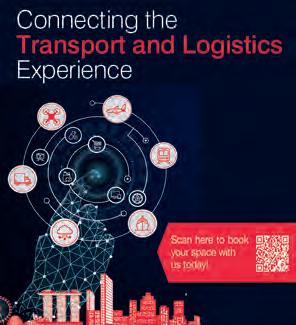
























The weekly newspaper for air cargo professionals
































CAINIAO ESTABLISHES STRATEGIC ...
CAINIAO Network, the logistics arm of Alibaba Group Holding Limited, has announced that it has established a strategic ...
PAGE 2
Etihad Cargo has reinforced its commitment to the Chinese market with the signing of a Memorandum of Understanding (MoU) with China’s SF Airlines. Following the MoU, both carriers will start operating flights via their respective fleets to the other carrier’s hub in April, which will enable the UAE’s national carrier to expand its reach into China via SF Airline’s extensive incountry network.

The new partnership between Etihad Cargo and SF Airlines will provide Etihad Cargo’s customers with greater connectivity to 25 domestic destinations in China via SF Airlines’ road feeder service trucking network, further enhancing Etihad Cargo’s capabilities in the region. In February 2023, the carrier launched an
additional direct freighter service to Shanghai, increasing the total number of freighter flights per week to eight. This MoU is the latest step by Etihad Cargo in expanding its operations in China and will see the carrier utilising SF Airlines’ Chinese network to transport cargo to other destinations in China via the Chinese carrier’s Hubei Province mega hub.
“Etihad Cargo is committed to establishing partnerships that add value to customers across the supply chain. Strengthening the connection between Abu Dhabi and and one of SF Airlines’ major Chinese hubs will enable Etihad Cargo’s customers to benefit from SF Airlines’ exhaustive distribution capabilities in China, and SF Airlines will reap the benefits of Etihad Cargo’s global network for its express product. Etihad Cargo is
committed to the country’s ambitious growth vision, and this partnership supports the further development of Abu Dhabi as a major logistics and express hub for the region,” Martin Drew, Senior Vice President – Global Sales & Cargo at Etihad Airways, said.
“Etihad Cargo is an industry-leading company, with a competitive cargo network from Abu Dhabi to the world. SF Airlines is excited the two companies can work together to connect hubs and strengthen the network of both airlines. SF Airlines is looking forward to this cooperation, which will offer good value to customers and enable them to develop their international business with more convenient and diversified global transportation options,” Li Sheng, Chairman of SF Airlines, added.
DYNAMIC GROWTH IN AIR TRAFFIC ... A dynamic traffic development brought Munich Airport significantly improved financial results in fiscal year 2022. With a passenger volume ...
PAGE 4
DNATA’S AIR DISPATCH CELEBRATES ... AIR Dispatch, part of dnata and the world’s leading supplier of centralised load control (CLC) services, has recently celebrated ...
PAGE 8
PROVIDING A VITAL TRADE ...
EDMONTON International Airport (YEG) is looking to connect Canada with key trade routes across the Americas and beyond with ...


PAGE 10

CAINIAO Network, the logistics arm of Alibaba Group Holding Limited, has announced that it has established a strategic collaboration with Correios, the national postal service of Brazil, to deepen collaboration in areas such as logistics and technology in order to enhance crossborder express and last mile logistics services for merchants and consumers. The joint efforts will also contribute towards the two companies’ shared goal of promoting bilateral trade between China and Latin America.
As part of this strategic collaboration, Cainiao and Correios will deepen their
cooperation in international airfreight, local logistics infrastructure, and smart logistics technology. This will help drive the optimisation of import and export logistics and China-Brazil express services, and create holistic full-chain solutions to serve more platforms, merchants, and consumers, and to accelerate trade exchanges between China and Brazil.
“Globalisation has always been one of our core business pillars. Today, Cainiao’s global express service has served hundreds of thousands of cross-border merchants and we are accelerating the development of holistic logistics capabilities to better support our
customers’ needs. Going forward, we will be deepening our collaboration with Correios to enhance bilateral trade between China and Brazil,” Wan Lin, CEO of Cainiao said.
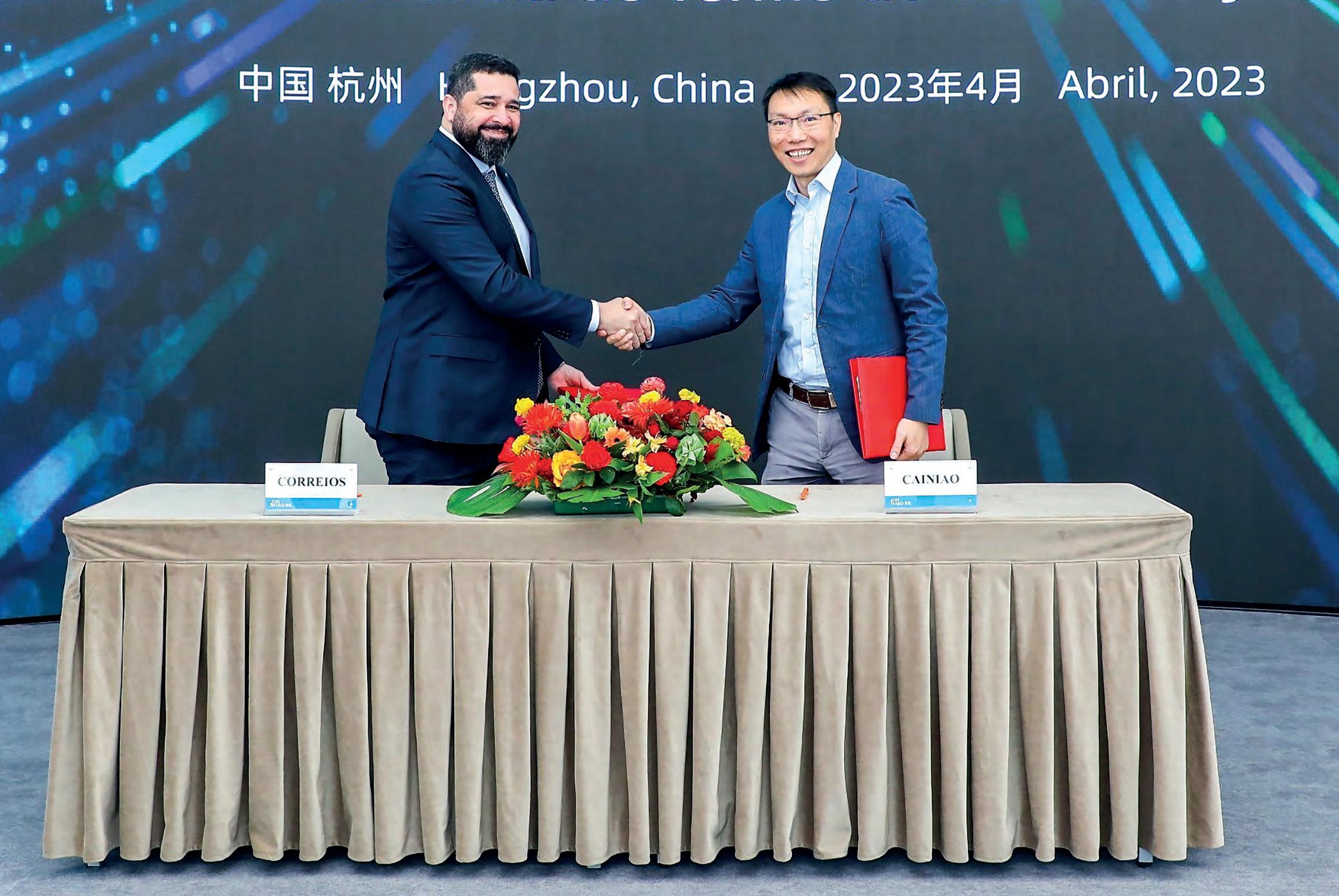
“We envision that this collaboration will be a huge step forward in the optimisation of logistic operations for Correios and Cainiao. Amid the highly competitive logistics industry in Brazil, it is pertinent for us to prioritise innovation, customer-centricity and a forward-thinking mindset in order to maintain industry leadership,” Fabiano Silva dos Santos, President of Correios, added.
Brazil is the 15th largest market for e-commerce with a revenue of USD $26.1
billion in 2021. According to the 2021 eEbit Webshoppers report, e-commerce in Brazil grew by 31% in the first half of 2021. In 2020 alone, the number of online consumers increased by more than 40% due to the pandemic and changing consumer preferences.
This March, Cainiao’s last-mile delivery business in Brazil grew by more than 70% compared to last year. Currently, Cainiao has eight weekly cargo chartered flights from China to Brazil, and has built automated distribution centres, overseas warehouses, and self-pickup lockers in countries such as Brazil, Chile, and Mexico.
LEADING logistics solution provider Rhenus UK is reporting steady growth across its daily services from the UK to Europe.
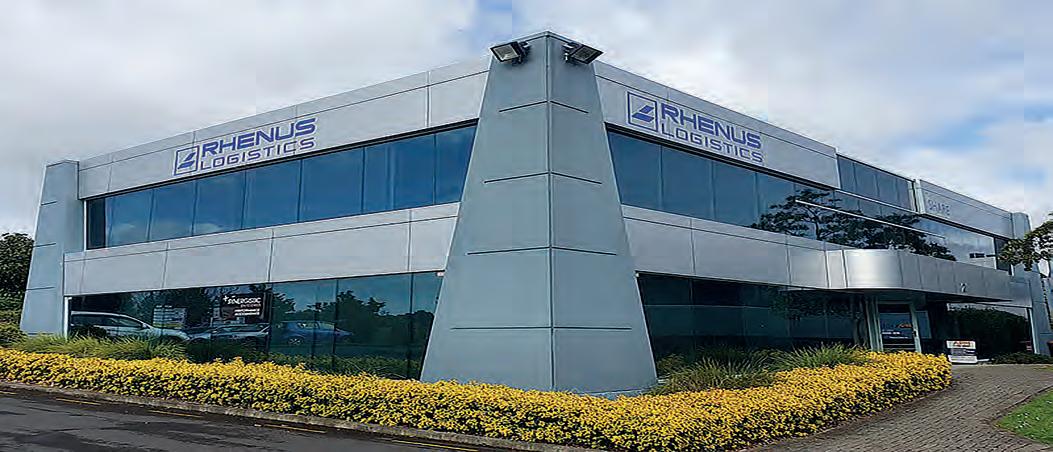
The company is attributing this growth in part to the introduction of the French Reverse Charge VAT regulation, which came into force at the start of 2022, and has seen UK businesses strengthen their EU supply chains.
Since 1st January 2022, the VAT due on goods coming from outside the European Union, released to free circulation in France, is no longer paid at the time of customs clearance and must instead be reverse charged in the VAT returns filed with the French tax services.
“It is deeply heartening to see our UK customers growing
in confidence when it comes to exporting post Brexit, and the French VAT change has certainly helped traders in this respect,” Gary Dodsworth, UK Road Director at Rhenus UK, added.
“Our daily services growth includes an increase in fixed daily schedules to and from Benelux, France, Germany and Italy. Our daily services, which encompass in-house transport customs solutions, ensure lead time continuity by reducing delay or disruption risks.”
“As the trading landscape continues to evolve, we remain committed to providing our customers with reliable and seamless end-to-end solution service levels. Exporters and importers alike can proceed with confidence in the knowledge that they have built in contingency to manage any situation that may arise going forward.”
Rhenus is urging exporters to secure their 2023 trading plans and prevent potential export disruption ahead of the migration from the CHIEF to CDS platform. The UK’s
existing legacy customs platform CHIEF (Cargo Handling of Import and Export Freight) is being replaced by the Customs Declaration Service (CDS). The change for imports took place late last year and the transition will take full effect on 30th November 2023 when exports are added.
‘’We are keen to ensure that, having started 2023 so strongly with rising export levels, businesses don’t stumble following the introduction of new custom procedures. November seems a long way off, but it will be one of the busiest trading periods for many businesses.”
“Traders who have not already started to prepare should subscribe to the CDS to register their EORI (Economic Operators Registration and Identification) number with the system. Key additional considerations for traders exporting goods include ensuring authorisation compatibility with CDS. At Rhenus we have the expertise to explain and support these requirements. We are happy to help exporters to manage this shifting landscape,” Dodsworth concluded.


AIRPORT Authority Hong Kong (AAHK) has released the traffic figures for Hong Kong International Airport (HKIA) for March 2023. During the month, HKIA handled 2.8 million passengers, more than 28 times the amount recorded in March 2022, and 372,000 tonnes of cargo, which represented year-on-year growth of 5.8%. Flight movements in March more than doubled year on year to 20,130.
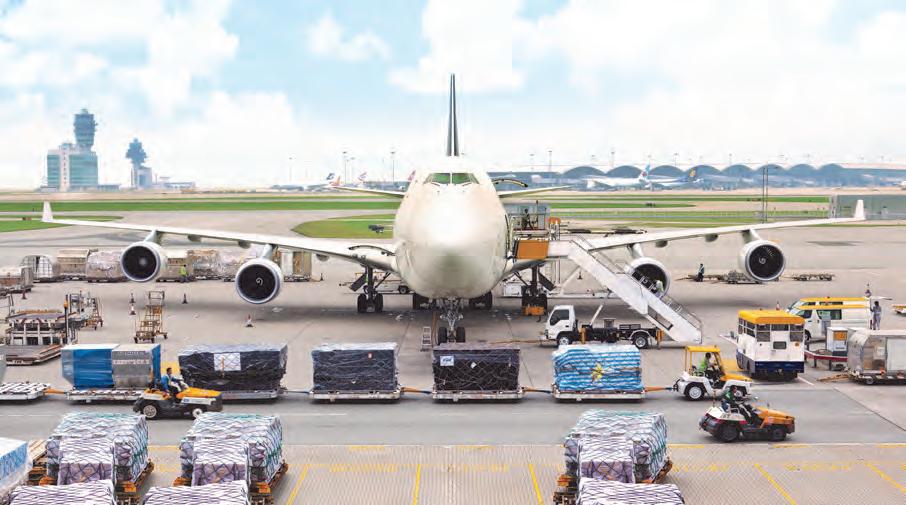
Cargo remained impacted by global economic uncertainties. Although cargo volume grew year on year in March 2023, this was primarily due to the low base for comparison set during the same month last year following pandemic-related supply chain disruptions. Exports grew by 19% year on year. Traffic to and from key trading regions in North America, the Middle East and Europe saw the most significant increases during the month.
In other news, HKIA was recently awarded Level 4, “Transformation”, in Airports Council International’s Airport Carbon Accreditation (ACA) programme, which recognises the airport’s firm commitment to reducing its carbon footprint as well as its achievements in carbon management.
“We’re honoured to receive ACA Level 4 accreditation, which underscores our tireless efforts in carbon management. Our pledge is to achieve Net Zero Carbon by 2050, with a midpoint target of 55% in emissions reduction by 2035 from a 2018 baseline,” Peter Lee, General Manager of Sustainability at AAHK, said.
BRUSSELS Airport is one of the most important airports in Europe. Brussels Airport caters for the specific needs of business travellers and holidaymakers alike, on intra-European as well as long haul flights and offering direct connections to more than 200 destinations.
Brussels Airport also has an important cargo activity with more than 775,721 tonnes of cargo transported in 2022. The airport offers a leading cargo platform, specialised in the transport of pharmaceutical products, perishable goods, e-commerce and live animals. Brussels Airport is therefore recognised as the preferred European Pharma & life sciences hub with the largest surface of temperature-controlled warehouses situated at BRUcargo.
We continue to focus on digitalisation within our community platform BRUcloud, making operations more efficient and transparent to all stakeholders. In addition, Brussels Airport further develops its expanding sustainable warehouse portfolio to meet market demand.
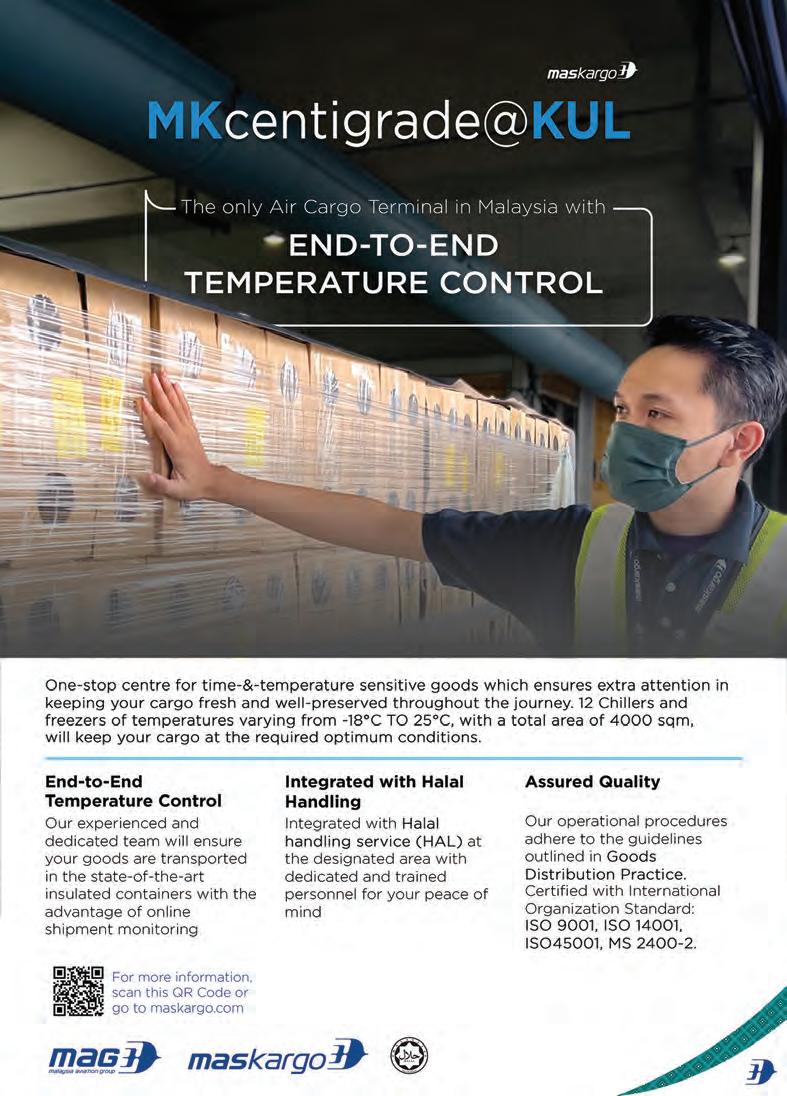
Because of our company’s focus on innovative projects, services and our past and current investments in digitisation, Brussels Airport has chosen to be a proud sponsor of the Information Technology for the Air Cargo Industry as this is fully in line with our own strategy and focus.


CHINA and e-commerce go hand-in-hand, and Liège, at the heart of the golden triangle in Europe, has quickly become a preferred European air cargo gateway.
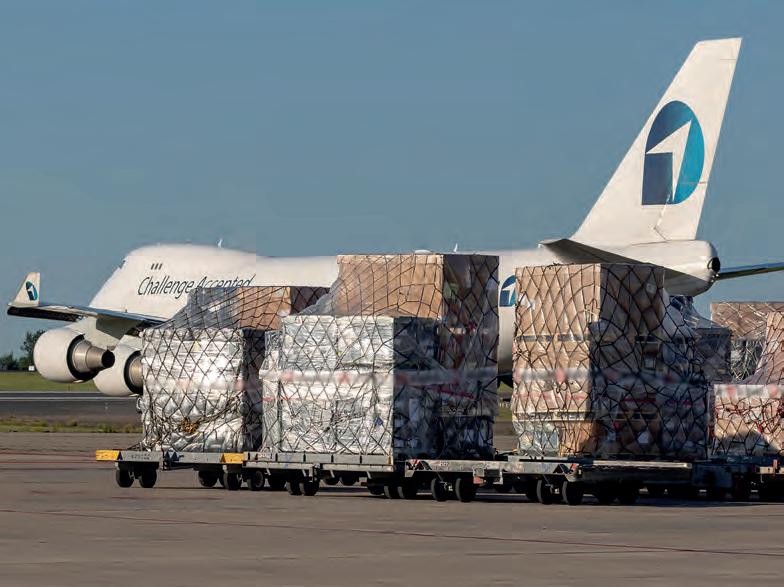
“Challenge Group’s activity out of China is currently based on e-commerce demand which already makes up 30% of our business at Liège Airport and saw 10% year-on-year growth in 2022,” Yossi Shoukroun, CEO of Challenge Group said.
The commodity requires a very different operational set-up to general air cargo since shipments are handled at piece level and sorted according to destination and last-mile delivery. “e-commerce from China must reach its European end-destination within maximum three, preferably two days,” Shoukroun explained.
ULDs from China’s leading e-commerce vendors, arriving in Liège mainly from Zhengzhou Xinzheng International Airport (CGO) and Hong Kong (HKG), are transferred to Challenge Handling’s dedicated second line warehouse, where they are broken down to house air waybill level and then built-up according to their destination country. The main European destinations are all within comfortable trucking reach from Liège: Paris (CDG), Frankfurt/Main (FRA), London-Heathrow (LHR), Amsterdam (AMS), Malpensa (MXP), and Riga (RIX). Challenge Logistics provides the middle mile service directly to the distribution centre at destination, where the last mile provider takes over domestic deliveries. This smooth end-to-end e-commerce solution speeds up the delivery process and is a more sustainable solution as it avoids multiple incoming trucks to Liège for shipment collection.
“e-commerce is the fastest growing commodity in air cargo and comes with its own highly specific requirements. End-to-end solutions from a single source remove the complexity for customers who otherwise need to individually engage with multiple supply chain stakeholders. Instead, using Challenge Group enables them to guarantee reliable timeframes to their end customers while we take care of all the logistical necessities,” Or Zak, Commercial Vice President of Challenge Group, said.
This includes customs clearance in Liège, for example, which Challenge Group recently launched as a product offering together with the middle mile delivery to the first distribution point in the country of destination, which then becomes a domestic delivery for the last mile operator. “In establishing a solid e-commerce product, Challenge Group is adding a core vertical to its product portfolio in perfect alignment with its own growth plans, that sets it up as a perfect strategic partner for e-commerce,” he concluded.
A strategic partner that is experienced in dealing with one of the major challenges of e-commerce: Lithium Batteries (ELI & ELM). “Electronics containing Lithium Batteries are the main e-commerce commodities coming into Europe from China,” Zak explained. “Challenge Airlines is one of very few carriers transporting items containing UN3480 and UN3090. Our experts are alert and rigorously trained to comply with all international regulations regarding Lithium Batteries, to
“With Liège firmly established as the main European e-commerce gateway for China, the next logical step for Challenge Group is to expand its footprint in China,” Shoukroun stated. “Having noticed the change that is taking place in the supply chain business model in terms of stock management and delivery times, we are looking at new markets, China in particular, with a view to offering short and medium-haul air cargo network destinations. Our new, more agile fleet of four B767F, the ideal aircraft for e-commerce, could be deployed to link China and the Indian Subcontinent or Africa, for example.”
Partnership discussions are already underway with a major Chinese airport partner regarding a warehouse location. “A Chinese base will help us to further develop our end-to-end solution and reduce the delivery time to the final customer.”
McLaren, Tyrrell, Sauber, Renault, Toyota before setting up the Lotus F1 Team through MGI in 2009.

MGI Engineering has been developing cargo eVTOL technologies for the past year, with the aim of providing these services to the wider industry. This has culminated in its Mosquito autonomous technology demonstrators for cargo applications. The vehicles are being developed to showcase MGI’s vision, know-how, and approach to the cargo UAV market. Developing ultra-lightweight structural composite designs are a key factor to ensure aerial vehicles can achieve their missions effectively and efficiently. MGI’s solution focuses on a configurable design with two variants of its demonstrator technology; the first is a tilt rotor configuration, with two rotors on each corner capable of tilting from 45 degrees in the forward direction to, 45 degrees rearward. The second features eight rotors with direct drive motors distributed across four wings and all four wings use MGI’s proprietary tilt mechanism that is used to control pitch and roll. This variant is able to take-off vertically and fully transition to winged flight for long distance missions. The modular approach to this vehicle, where wings and rotors can be configured according to the mission profile, allows for scalable common platforms using common battery modules to ensure cost performing kilometre-per-mile solutions for cargo delivery. The vehicle platform concept has also been designed to be scaled-up efficiently to payload capable vehicles carrying up to 500kg. The platform sharing solutions are inspired by Mike’s experience of working with the automotive industry throughout his career.
SPECIALIST consultancy company MGI Engineering has launched its cargo UAV technology demonstrator programme.
This announcement will thrust the well-established specialist engineering consultancy firm into the newly-emerging cargo eVTOL industry and promises to bring a fresh viewpoint on how to develop the latest aerospace technology for these novel vehicles. MGI is applying Formula 1 development philosophies and mindset to the cargo eVTOL UAV market. Lightweight composite structures with a highly-efficient, fast-paced iterative design processes are key elements of the company’s approach to tackling the challenges that the cargo eVTOL industry presents and it aims to provide these consultancy services throughout the cargo eVTOL industry. MGI Engineering’s prowess stems from its decades of experience at the pinnacle of motorsport, F1 – a tenure that is reflected through its senior staff and its CEO, Mike Gascoyne – who has previously worked at
“We are really proud to announce our cargo eVTOL technology demonstrator programme at this year’s eVTOL Insights’ Conference. We believe that developing sustainable electric aviation vehicles combined with our unique expertise and experience from Formula 1 of lightweight hybrid composite vehicles is the future of the transport industry and will ease the strain on current methods whilst decarbonising multiple sectors. We are very happy to have a fully working demonstrator vehicle that has passed all our tests to date including fully transitioning from vertical to horizontal flight. We’re excited to see where our development journey takes us and look forward to solving the unique and novel challenges the industry presents us with. We also want to invite clients, partners and investors to join our vision to develop highly efficient cargo UAV solutions. MGI Engineering, as a cargo eVTOL consultancy service, understands in order to bring aerial vehicles successfully to market requires a multi-disciplinary team across multiple industries,” Mike Gascoyne, CEO of MGI Engineering, said.
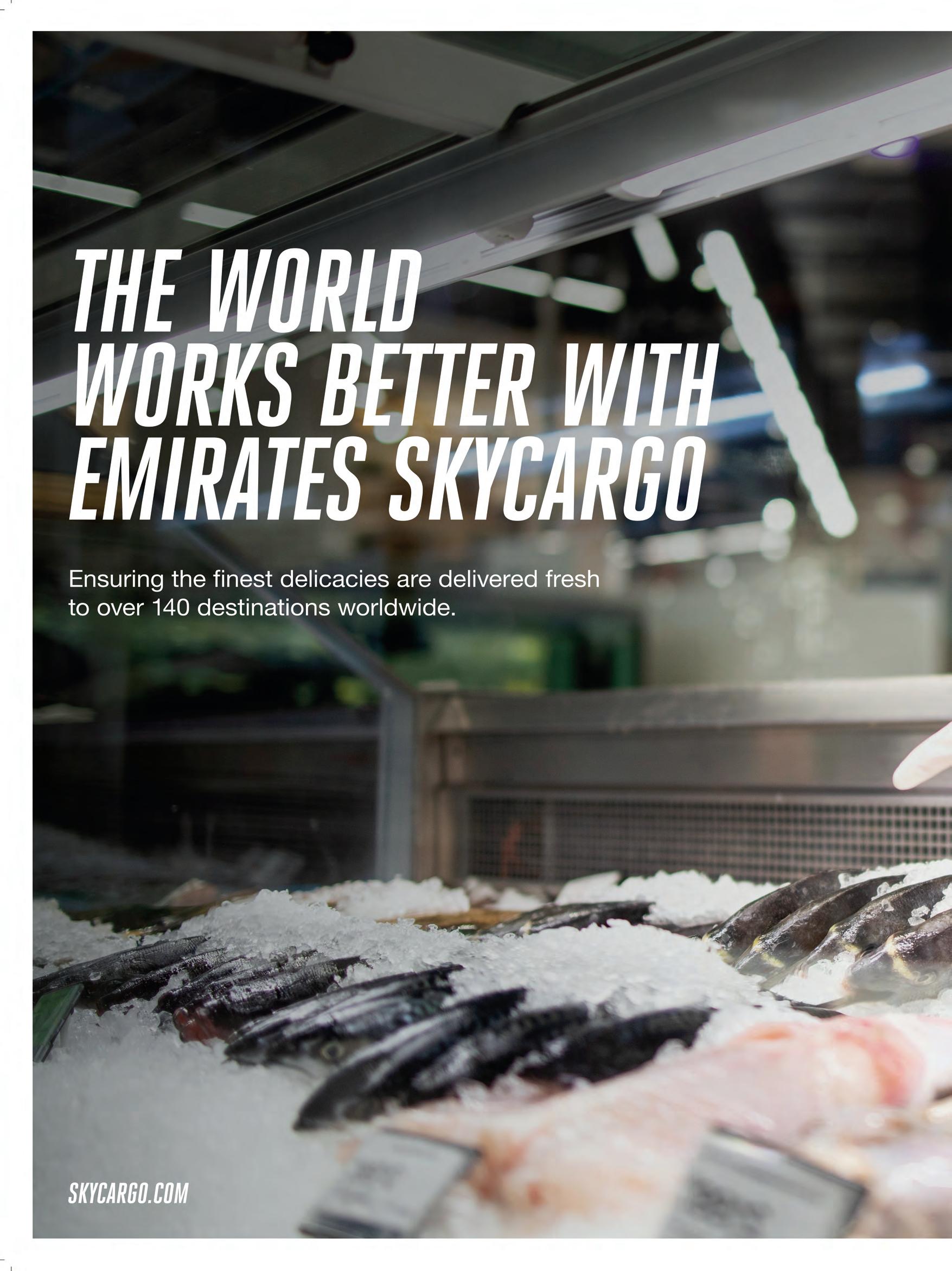

AIR Dispatch, part of dnata and the world’s leading supplier of centralised load control (CLC) services, has recently celebrated the production of its seven millionth loadsheet.


on behalf of global forwarder GEODIS.
Air Dispatch has been offering quality and reliable CLC services to both legacy and new generation carriers since 2007. It calculates the weight and balance conditions for aircraft prior to flight, securing greater productivity and profitability for its airline customers.
Air Dispatch’s CLC unit coordinates with stakeholders at all stages of the operations and provides 24-hour support for weight and balance issues. The timeline for a cargo flight varies and is often spread out over many hours. Cargo handlers, such as dnata, need to understand the maximum weight and specific pallet combinations many hours before the departure of the flights so that they can build the payload in the most effective way, ensuring compliance with the balance requirements of the aircraft operating the flight. The load planning takes place before the Loadmaster arrives at the airport, freeing them up for the safety critical role of coordinating and supervising the loading. A CLC unit can also coordinate transit loads well before the aircraft arrives, allowing for efficient turnarounds and improved ontime performance.
Every month, Air Dispatch’s 170 highlytrained aviation professionals produce over 60,000 loadsheets for 19 airlines operating from 392 airports across six continents and every time zone with an airport on the planet.
“We are proud to celebrate our 7th million loadsheet with our highly-skilled team and long-standing customer, marking another remarkable milestone in our journey,” Nick Yeadon, CEO of Air Dispatch, said.
“With the increased adoption of the IATA Ground Operations Manual (IGOM), more and more cargo airlines are looking to CLC services as a way of complying with the newly required
“four-eyes” principle for the production of weight and balance documentation. Using a CLC for the production of the loadsheet allows for early communications with the cargo warehouse, thus maximising the payload and freeing up the Loadmasters’ time during the turnaround.”
“We will continue to work hard to deliver world-class value for our customers through innovative and safe services.”
“Congratulations to Air Dispatch on this milestone. The Air Dispatch team, day in, day out provide our operation teams firstclass support. The CLC team in Prague work proactively with our partners, from our freight forwarder client, through the warehouse and ground handling chain to ensure safe and on time departures while maximising the payload we carry. Additionally, the CLC provides reactive solutions to our Loadmasters when they are busy out on the ramp and encounter a need to replan, using the four-eyes principle this enhances safety and allows our loadmasters to focus on load supervision,” Greg Holland, Operations Director at Titan Airways, added.
In addition to its core CLC expertise, the Air Dispatch also provides carriers with other value-added support services, including flight data warehousing and ULD (unit load device) tracking.
Air Dispatch operates three state-of-the-art centralised load control (CLC) centres, two in the Czech Republic, in Prague and Ostrava, and one in Poland, in Warsaw, utilising the customer’s preferred departure control system (DCS) solution.
The Air Dispatch brand is part of dnata. dnata offers ground handling, cargo, travel, catering and retail services in 38 countries across six continents.

ASIANA Cargo started its operations at Brussels Airport on 22 April 1998, operating full cargo flights as one of the longest operating airfreight carriers at the hub. Known for their reliable and punctual operations, Asiana provides an important link from the heart of Europe to Asia for the transport of machine parts, electronics and pharmaceuticals.
South Korean War, distributed by the Korean government out of gratitude for services rendered in the past. This confirms the strong bond between South Korea and Belgium on the one hand and Asiana Airlines and Brussels Airport on the other.
FIATA, the International Federation of Freight Forwarders Associations, and the Global Shippers Forum, have jointly issued an agreed Charter for Protection and Governance of Data in International Trade that sets out the minimum arrangements for data security and confidentiality that providers and operators of digital booking and trading platforms should adopt and incorporate in their End-User Agreements (EUAs). Recommendations in the Charter seek to enable a safe and trustworthy environment for conducting business based on a level playing field.
The Charter has been approved by members of both organisations and is believed to be the first declaration of rights for platform users in the trade and logistics sector.
“FIATA is committed to enabling the shift of trade from analogue to digital form to increase efficiency and resilience of global supply chains,” Dr Stéphane Graber, Director General of FIATA,
noted.
“In this journey, interoperability between platforms and their credibility amongst users are critical for success. This requires clear and fair rules on data exchange to protect confidentiality and ensure trust between stakeholders. FIATA is happy to lead this effort with GSF on the crucial topic of data governance and protection,” he continued.
“Digitalisation of international trade and transport paperwork offers huge savings and benefits for all parties in the supply chain, but its storage and processing comes with risks of loss, leakage and unauthorised use that could expose commercially sensitive patterns and trends,” James Hookham, Secretary General of GSF, said.
“Our Charter sets out reasonable expectations of the protections that should be in place to respect the ownership of the data, protect its confidentiality and guard against unauthorised access and use,” he added.
25 years later, Asiana is still present as an active and reliable partner, flying from New York to Brussels Airport three times a week and then on to Incheon Airport in South Korea. Because of their high reliability, Asiana was selected to transport high-sensitivity machines used to manufacture state-ofthe-art semi-conductors. These high-tech products are used by major global brands to build into their electronic devices and distribute them to the rest of the world.
During the Covid-19 Crisis, Asiana transported numerous vaccines from Brussels Airport to Seoul for the Korean vaccine programmes. And in the early stages at a time of shortages in supplies they also brought masks to the Belgian Veterans from the
“We congratulate Asiana Cargo with this special 25th anniversary and thank them for their trust and year-long reliable and intense cooperation. We look forward to continue our successful collaboration in the years to come, linking the heart of Europe to a key trade region in Asia,” Geert Aerts, Chief Cargo & Real Estate Officer Brussels Airport, said.
“Our very first European adventure started in 1998, right here at Brussels Airport with a combi-flight. Despite having had some challenging times throughout our journey, the partnership between Asiana Cargo and Brussels Airport has remained strong. We are proud and honoured to celebrate our silver jubilee with our Brussels Airport partners and look forward to many more successful years,” Tae Yong Lee, Regional Sales Manager, Asiana Cargo, added.
DNATA’S AIR DISPATCH CELEBRATES 7 MILLIONTH LOADSHEET
The best way to ensure safe Cargo flight operations is to have healthy and alert pilots. It would then seem obvious that making the cockpit environment as comfortable as possible would be a design priority. Surprisingly, this is not the case, but help is at hand from CTT Systems.
The cockpit environment can be a challenge for flight crew, especially on longhaul aircraft, where exposure time is longer, with adverse conditions having an accumulative effect.

A big problem is low relative humidity (RH). Human beings are comfortable when RH levels are above 20%, but cockpit RH levels drop to 3%. Cruising altitude of most long haul flights is at an altitude where there is very little water vapor in the atmosphere, so the in-coming air is extremely dry.
Low RH levels effects? Most importantly for pilots, eyes become dry and itchy. The lack of moisture dry out the nasal passages, mucous membranes, mouth and respiratory tract. The nasal cavity dries quickly, reducing the sense of smell, while
aircraft c-checks.
To date, CTT has delivered more than 3,500 humidifiers but we have identified another problem with cockpit air that needs to be dealt with - Volatile Organic Compounds (VOCs).
Substances, such as acetone, benzene and toluene, can be detected inside the aircraft as well as ingestion of exhaust fumes or deicing fluid coming in through the aircraft’s environmental control system. Oil from engine bearing seal leaks are another source of VOCs. These produce similar symptoms as dry air, but high levels can cause performance impairment or, in rare cases, incapacitation. In addition, VOCs can react with oxygen (O2) in flight to produce ozone (O3), which is also an irritant to mucous and respiratory tissues.

CTT has teamed with two specialists in air filtration to produce a modified humidifier to counter the problem. Using Munters current pad solution together with a newly developed active carbon filter solution from Camfil, the new unit will reduce VOCs by up to 80% and ozone by 70-75%, both in the air and during fume events on the ground. The new pad also has a service life of 4,000 flight hours, the same as the humidifier, simply replaced with no special tools or new routines required.

CTT has produced a conceptual design for the Boeing 777X, which is just about to complete testing, ready for market launch in September. This could also be simply swapped out with the current 787 or A350 cockpit humidifier.
CTT is continuing to make progress in helping customer to look after their flight crew and keep them healthy and safe.
the viscosity of saliva changes, reducing the sense of taste. A dry nasal cavity also increases susceptibility to colds and virus, as the activity of cilia, which work to keep the airways clear of mucus and dirt, are suppressed. The solution is to raise RH levels and CTT has years of experience in producing aviation humidifiers. The humidifier is incorporated into the ducting of the environmental control system. A special absorbent pad is drip fed from the aircraft’s potable water supply. As the ECS air passes through the wet pad, it picks up moisture before entering the cockpit raising the RH level to 22%. Not only does humidification reduce the symptoms associated with dry air, but it also decreases stress levels, so flight crew get better sleep and rest before their next flight.
Major airlines have recognizing the problem, with more than 90% of Boeing 787s equipped with a cockpit humidifier and an increasing number of Airbus A350s. The system is also available on the Boeing 777X.
For flight crew recovery a crew rest compartment is often selected and equipped with humidifiers for long-haul operations. A350F it will be the first Freighter aircraft with Cockpit and Flight Crew Rest Humidifier available as options.
For Passenger to Freighter conversion CTT has Cockpit and Flight Crew Rest Humidification kits available to be install during the conversion as well as during

CHAPMAN Freeborn, the global air charter and leasing specialist, has appointed Nick Kelly as Senior Vice President – Aircraft, Crew, Maintenance, and Insurance (ACMI) Leasing, working as part of the newly-formed global ACMI department.
Kelly brings 18 years of valuable industry experience in ACMI leasing and cargo operations to Chapman Freeborn.
In his new role, Kelly will work with Chapman Freeborn’s ACMI teams globally with a focus on third party ACMI leasing and business growth in the European market and beyond.
“I’m excited to join Chapman Freeborn and look forward to working
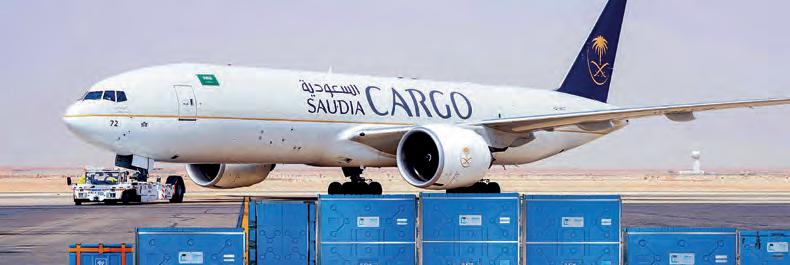
together with the team we have put in place to grow our global presence in the ACMI market, adding to Chapman Freeborn’s already excellent reputation in providing cargo, group charter and private jet charter services,” said Kelly.
Kelly will report to Scott Collier, President – ACMI at Chapman Freeborn.
“Nick has extensive experience across all areas of the industry, from cargo and airline operations to the passenger sector,” said Collier.
“His experience and expertise will be a huge asset for our team and the company, and highlights Chapman Freeborn’s commitment to their provision of airline support in the long term.”
Outside of work, Kelly enjoys travelling, spending time with his wife and daughter, and playing sports such as tennis and football. He also holds a pilot’s licence and has a passion for flying.
The Seahorse Freight Association, a not-for-profit organisation championing career and networking opportunities for journalists in supply chain and transport, has welcomed Pressiana Naydenova, Corporate Communications Manager at Associated British Ports (ABP), to its committee.

As a Board Member on the committee Pressiana will help raise awareness around the rewarding careers available in trade journalism and the important work done by the organisation to recognise media excellence, including its annual Seahorse Journalism Awards, which will launch shortly.
“I am really excited to join this organisation, which has a vital role to play in promoting careers in trade journalism, as well as nurturing journalists’ skills in interpreting what are often complex concepts and conveying them to the public in an accessible way,” Pressiana said.
“Promoting and recognising those who tell the stories of our great maritime sector is an important mission, which I look forward to helping deliver.”
SAUDIA Cargo has added Tower Cold Chain to its approved roster of temperature-controlled containers for shipping pharmaceutical, biotech and life science products, in a new global rental agreement.
The deal reinforces Saudia Cargo’s commitment to having the broadest possible selection of cold chain products (both in terms of cargo size and temperature requirements) to serve the growing requirements of pharmaceutical customers from around the world.
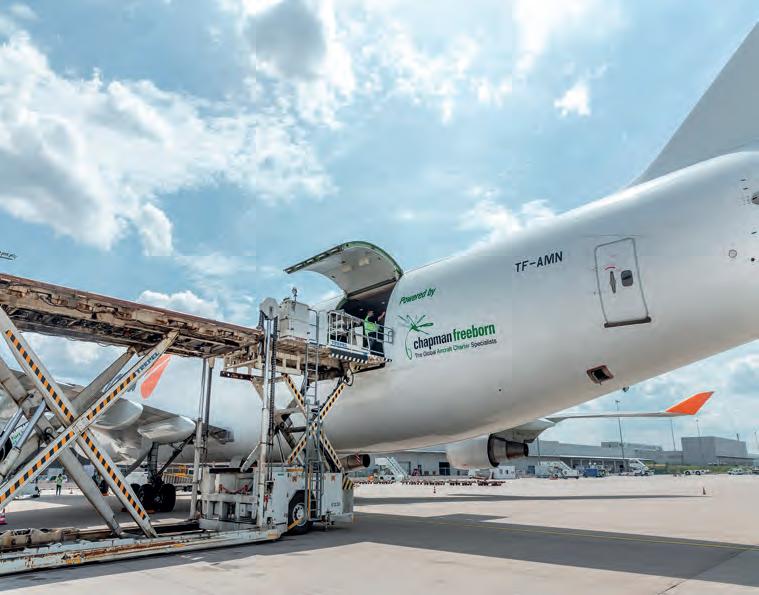
A key benefit of Tower Cold Chain’s technology is its reliability in maintaining product integrity without the need of electricity even in extreme heat, meaning that a robust solution is required to prevent temperature excursions.
“Given these conditions, we have an extra duty of care to customers to ensure due diligence in choosing our pharmaceutical cold chain partners,” Adel Elshazly, Global Product Manager at Saudia Cargo, added. “Tower’s passive solutions are proven to maintain temperatures up to 120 hours, without any need for intervention or external power.
The Tower range offers effective physical and temperature protection for internal payloads from 3075 litres down to 26.4 litres – the latter made possible by the launch in 2022 of the KTEvolution, the company’s first hand-held container, ideal for small-batch, direct-to-patient shipments.
Tower containers ensure up to 120 hour protection for products that require an internal temperature of -80°C (ultracold), -60°C (ultracold), -20°C (frozen), +5°C (refrigerated) or +20°C (controlled room temperature).
“The breadth of the Tower range means we can extend our network and provide customers with greater choice, including the ability to ship pharmaceuticals on narrow-bodied as well as widebodied aircrafts” Adel Elshazly stated.
With hubs in Saudi Arabia’s three biggest airports – Jeddah, Riyadh and Dammam – Saudia Cargo is a key partner for companies shipping pharmaceuticals into the Middle East. The European market in particular is a major source of pharmaceutical and life science cargo, a factor that was integral to Saudia Cargo’s selection of Tower Cold Chain.
“Tower has a growing network of hubs, including locations where much of our business hails from airports such as Frankfurt, Zurich and Milan. The proximity and availability of Tower containers at these hubs means we can offer seamless and direct delivery to our airports.”
Customers wanting to use Tower containers should discuss their requirements with Saudia Cargo, who will then lease the chosen solution using Tower’s intuitive 24/7 online ordering system.
“We choose our partners carefully and we know Tower is a pillar of the pharmaceutical container market, we are delighted to announce this partnership which will take us to new heights for global customer satisfaction,” Elshazly added.
“As a global company, this partnership is a vital part of our commitment to customers. Saudia Cargo gives us a valuable gateway into the Middle East, and in turn we are honoured to be able to help them meet customer demand for robust, reliable, and reusable pharmaceutical cold chain solutions,” Tower’s Chief Executive Niall Balfour, said.
In her current role at ABP, which is the UK’s leading ports group, Pressiana delivers integrated communications strategies and oversees branding and planning of company events such as the “Women in Maritime Charter” launch in 2017, organised in partnership with WISTA UK, and ABP’s sustainability strategy launch, Ready for Tomorrow, in February 2023.
Prior to joining ABP, she held a number of communications and marketing roles in the charity and private sectors.
The Seahorse Freight Association, which was formed in 1962, brings companies in the supply chain, logistics, and transport industry together with the media who report on them and the public relations and marketing professionals who work in the sector.
Seahorse organises an annual awards competition to celebrate excellence in reporting, which is open to all journalists globally that write about the industry.
“Seahorse is focused on celebrating and rewarding excellence in reporting in our industry and shining a light on the fantastic career opportunities in journalism in our sector,” Emma Murray, Seahorse Chair and CEO and Founder of Meantime Communications, added.
“Pressiana’s experience and energy are a fantastic addition to our team, and we look forward to working with her as we continue to champion diversity and encourage the next generation of writers.”
Seahorse’s next event will be a summer party, with details announced shortly.
EDMONTON International Airport (YEG) is looking to connect Canada with key trade routes across the Americas and beyond with a revenue-generating and low-cost freighter gateway for cargo flights. YEG is a full-service cargo airport, with the volume of airfreight handled by the hub growing every year as more companies see the opportunity presented by partnering with the facility.
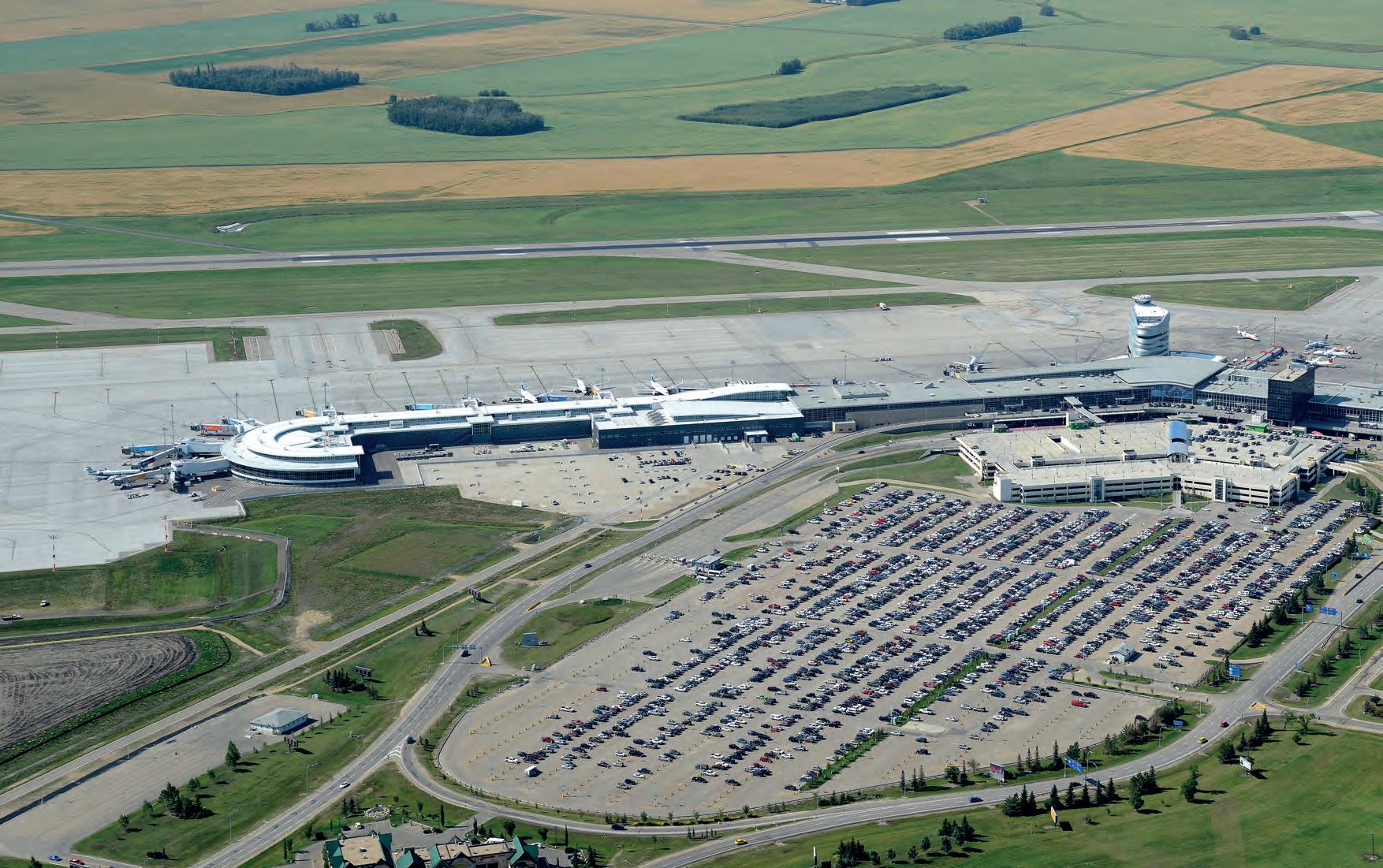
YEG recently marked a new start in its history, having welcomed Myron Keehn as its new CEO at the end of December 2022. Settling in, Keehn is focused on discovering new opportunities to drive value for the aviation industry and turning ideas into reality – many of these initiatives centre around decarbonising our airport operations.
“We look forward to working collaboratively with our team, stakeholders and industry partners to continue expanding capacity, building our air cargo network, driving innovation and continuing our sustainability efforts,” Mammen Tharakan, director of e-commerce, cargo and aviation real estate at Edmonton International Airport, stated.
Ahead of the curve
The growth at YEG is evident for all to see, with a 7.2% increase in cargo in 2022, compared to the previous year. Reflected in these numbers, YEG saw a surge in activity from dedicated charter operators looking for a freighter-friendly airport providing a high standard of uninterrupted service. The hub’s uncongested and efficient cargo operations contributed to this growth.
“Edmonton International Airport (YEG) is well ahead of the curve, having spent over a decade strategically planning for air cargo development and investing in real estate to service the global supply chain demand increase,” Tharakan said.
Years before the pandemic saw a rapid growth in the trade of pharmaceutical goods via air, YEG recognised there would be increasing demands for that sector in the coming years, with speed of delivery critical. “We were well ahead on these trends and have become a critical hub in the intermodal supply chain needs of global businesses,” Tharakan explained.
YEG is also the only airport in Canada with the globally recognised CEIV Pharma community certification from the International Air Transport Association (IATA), providing a fresh and safe gateway for perishable cargo.
“YEG’s forward-thinking leadership ensured we invested in this certification well before the pandemic. This means we
are certified to safely support the movement of temperaturesensitive commodities such as pharma, bio-pharma, vaccines, perishables and agricultural exports and imports,” Tharakan added.
About 80% of all cross-border e-commerce moves by air, as it’s really the only way to meet the aggressive delivery timelines that customers have come to expect. It represents 6% of the global economy, according to IATA.
Pre-pandemic, e-commerce was a fast-growing segment at YEG that has only accelerated over the past three years. Shifting from the ‘palletisation’ to the ‘parcelisation’ of cargo provides new business avenues for YEG.
The Edmonton Region’s favourable business environment and availability of land for industrial development, including warehousing and other logistics needs, continue to support cargo demand.
“Edmonton has always been a thriving consumption market with a very active retail market including brick and mortar supported by the high average wages, and no sales taxes which allows for a higher ‘take-home’ pay. A big portion of this spend has shifted to electronic channels and air cargo is supporting the movement of these goods,” Tharakan highlighted.
The Canadian government has invested up to C$100 million to increase air cargo and logistics handling operations at YEG. The project will convert approximately 2,000 acres of land into a new global cargo handling operation.
With this investment, the Edmonton International Airport will expand its multi-modal distribution throughout Canada, the United States of America, and Mexico. The airport’s increased cargo capacity will improve the movement of import and export trade routes and strengthen Canada’s supply chain.
“The International Cargo Hub is a transformational development that will be the largest cargo expansion in the airport’s history. It will include runway connections and taxiways to integrate new cargo handling aprons with direct airside handling operations and expansive facilities for handling, warehousing, automated e-commerce logistics and distribution,” Tharakan said.
In September 2022, YEG completed its 47,000 m2 cargo apron expansion. The expanded cargo area holds up to six more widebody aircraft, accommodating more planes at once for loading and unloading.
The airport’s increased cargo capacity will improve import and export trade routes and strengthen Canada’s supply chain. It will serve as a vital trade corridor for Canada and position the country’s leadership in global supply chains by helping capitalise on the rapid global growth of e-commerce and import/export fulfillment.

Canada’s most northern international airport and the northernmost major city in North America, Edmonton benefits from the confluence of the different modes: air, rail – with access to the busiest Canadian West coast ports, and road network with the CANAMEX corridor from Alaska down to Mexico.

“When using the earth’s curvature to improve supply chain efficiencies, YEG is a strategic location to access Europe, the Middle East and Africa. It is a significant entry point into North America and Latin America,” he explained.
Edmonton International Airport is a leading supporter of innovative businesses through its Innovation Expansion Strategy, exploring alternative energy, unmanned operations, technological developments and more.
YEG is one of the only major airports in the world to have successfully integrated drone logistics. In December 2021, they became Canada’s first airport to begin regularly scheduled drone delivery operations. This work continues to be refined and expanded with Drone Delivery Canada and the partners in this project – Apple Express, Ziing Final Mile and Leduc County. Drone delivery uses zeroemission drones to conduct final-mile delivery services, helping reduce vehicle traffic and emissions. It also connects products to remote or isolated communities or locations where vehicle access is disrupted.
Users of cargo facilities need to leverage technology to maximise the efficiency and throughput in existing facilities. Automated facilities increase the storage capacity of cargo and provide faster handling for air freight customers. Robotics and intelligent warehouse automation reduces manual labour, travel time and errors,
keeping cargo moving efficiently and allowing workers to focus on higher value tasks.
The air cargo and logistics industry needs to continue focusing on adopting new methods to share data with shippers and customers. Innovative solutions to provide accessibility and visibility are being introduced to the supply chain.
Partners in the supply chain can then observe end-toend, real-time tracking and monitoring solutions, giving them full visibility throughout the shipping process. This provides access to data in real time while products are in transit. It is important to recognise that the industry is shifting and customers are looking for digital technology solutions that provide shipping data. Service providers need to adapt to how customers, both large organisations and small businesses, want to view their shipments.
“There is greater interdependence between the various stakeholders in the supply chain than ever before. Air Cargo has demonstrated its agility and should now continue to embrace change and innovation to positively disrupt from within,” Tharakan said.
Just 60 miles east of Los Angeles and centered among major transportation corridors, SBD International Airport offers a strategic base of operations for air cargo and logistics companies. The Airport’s state-of-the art infrastructure supports the nation’s leading express freight carriers including FedEx, UPS, and Amazon Air, and its ideal location and competitive cost structure present a significant opportunity for companies seeking to expand in the region.
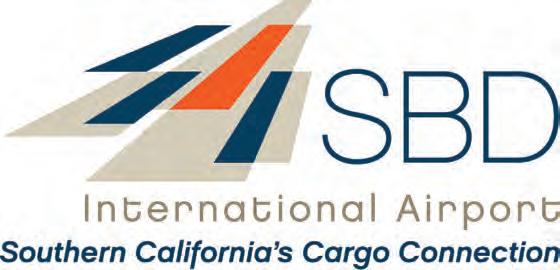
SBD is situated in the heart of the Inland Empire, a diverse region that boasts a powerhouse economy in its own right and which consistently outpaces average growth rates nationally. The Airport provides access to the region’s estimated 4.7 million consumers—many of whom live less than 30 minutes from the Airport—as well as to a vital goods movement corridor with global reach. Its strategic location is just minutes away from Interstates 10, 210 and 215, the BNSF intermodal container facility, Roadway and Yellow Freight hubs, and modern warehousing facilities.
SBD’s state-of-the-art infrastructure supports daily, large-scale air cargo operations and one-off flights. Its Group VI runway easily accommodates the world’s largest aircraft, while skilled staff and specialized equipment ensure quick cargo handling and efficient turn times. Should they be needed, a comprehensive range of aircraft services are available from the airport’s MRO partners.
Enabling companies to fast-track deliveries while offering them an attractive cost structure in a highly competitive market has proved to be a winning strategy for both the Airport and its partners. Boosted by these thriving businesses, SBD now ranks as one of the country’s top airports for cargo growth. Transportation and supply chain solutions is what SBD delivers every day.
For air cargo and supply chain management companies seeking to launch or expand in the region, SBD International Airport provides an ideal geographic location in which to base operations, improve operating expenses, and benefit from an executive team committed to long-term success.
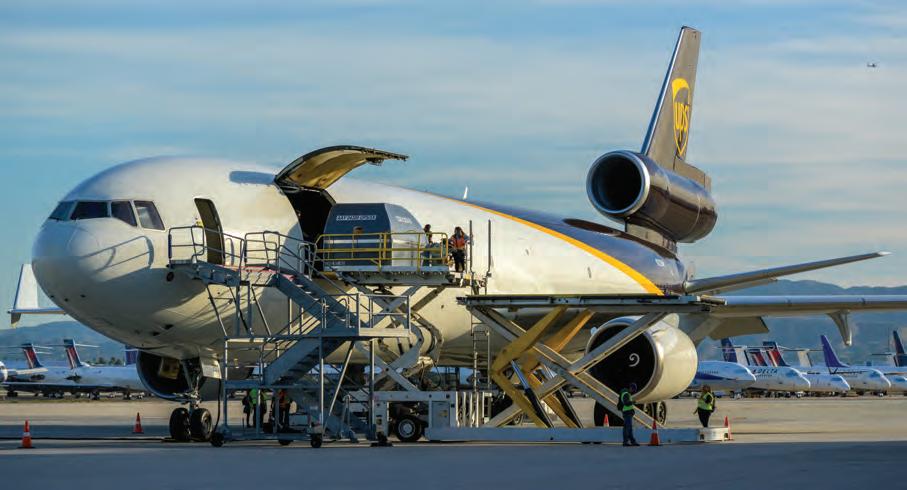
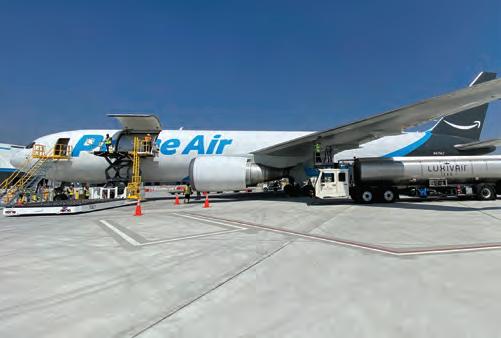
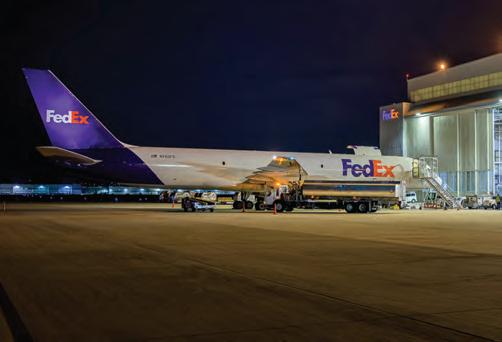
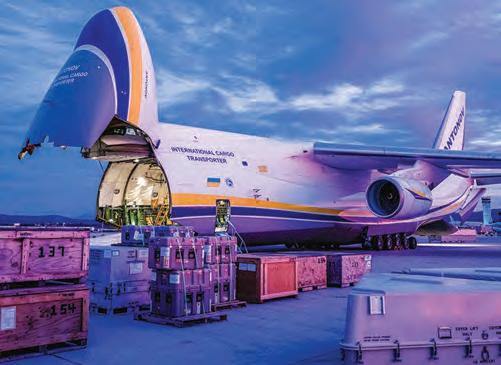
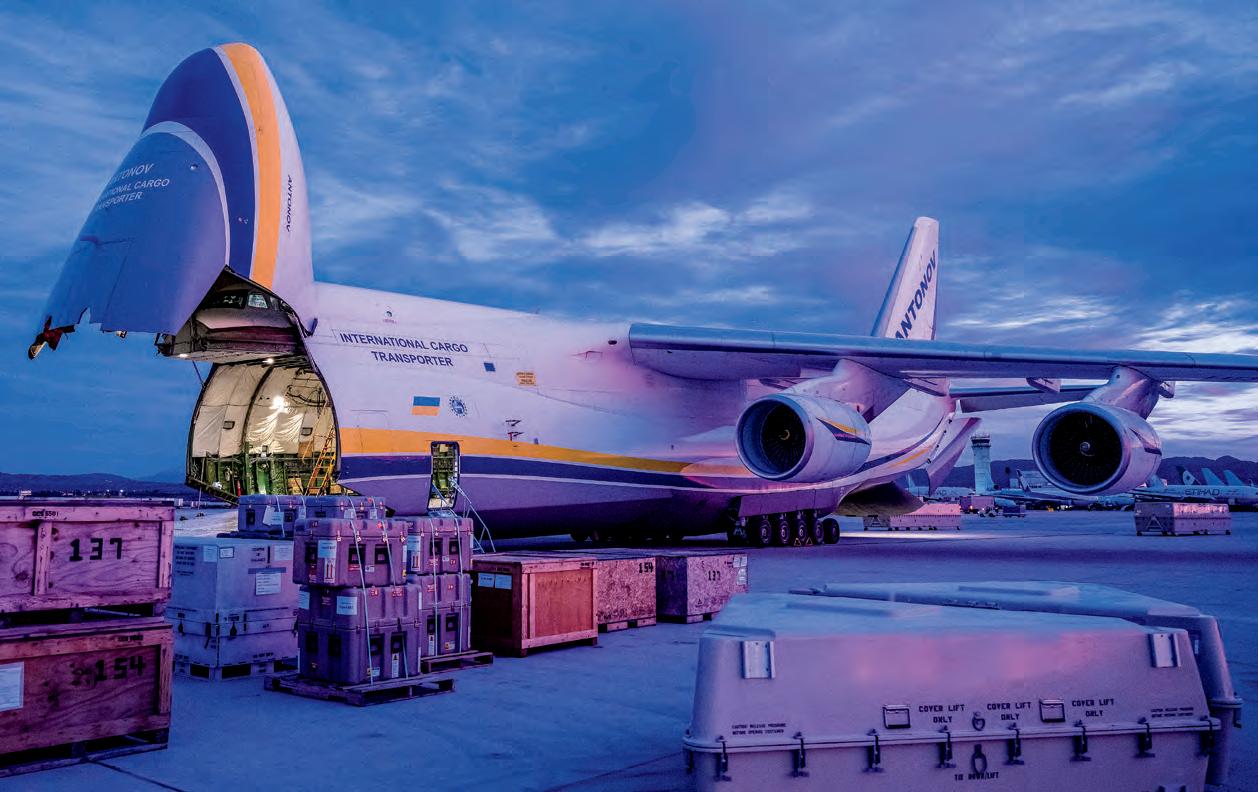
Contact:
Telephone: 909.382 4100
cargo@sbdairport.com
sbdairport.com


WESTJET Cargo and the GTA Group have celebrated the inauguration of the first of three 737-800 Boeing Converted Freighters in Toronto alongside integral business partners and key stakeholders. The event was commemorated by a ribbon cutting at WestJet’s Toronto hangar, signifying the launch of WestJet Cargo and the GTA Group’s dedicated freighter service that will fulfill the large-scale needs of businesses, freight forwarders, shippers and individual customers across North America. WestJet Cargo and the GTA Group’s Toronto celebration is the first of three inaugural events, taking place across Canada, with events in Halifax and Vancouver, to follow, respectively.
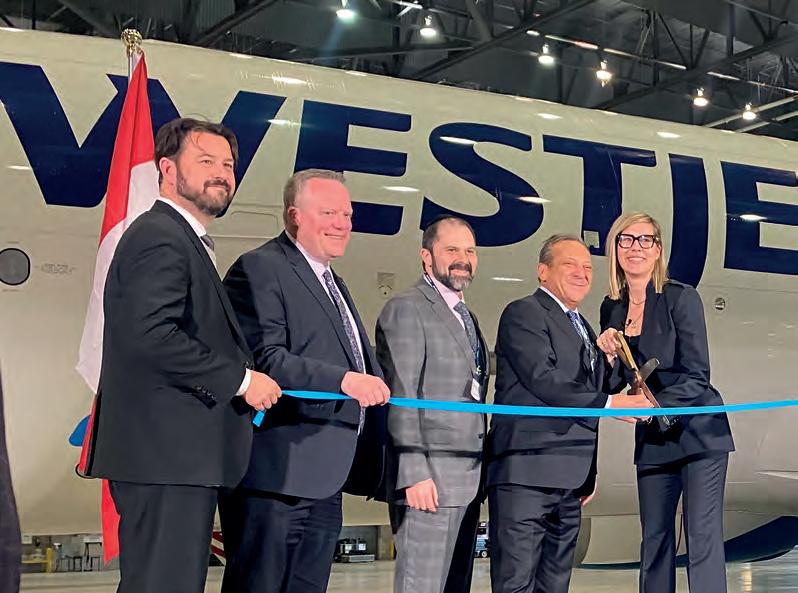
“We are thrilled to be celebrating this long-awaited milestone in Toronto, a core hub for WestJet Cargo and home of the GTA Group,” Kirsten de Bruijn, WestJet Executive Vice- President, Cargo, said. “As Canada’s largest global hub, Toronto is a vital destination for our dedicated freighter operation that will enable WestJet Cargo to plug into a vast network of cargo entering the country and allow us to seamlessly execute the distribution of this cargo to its final destination across Canada.”
“Today is an exciting day for the GTA Group as we celebrate and welcome this highly anticipated moment in Toronto. This joint
venture with WestJet Cargo will without a doubt, strengthen our position to meet the needs of the rapidly growing Canadian cargo market,” Mario (Mauro) D’Urso, Chairman of The GTA Group of Companies, added. “The capacity of the four dedicated freighters will bring customers new competitive options by providing more airfreight capacity to cargo customers who depend on reliable and on-time performance. We are thrilled to see these freighters take flight as we strive to provide exceptional service to all of our customers and their business needs.”
“As a proud Canadian leader in the industry, WestJet has always been on the cutting edge of transportation innovation,” Caroline Mulroney, Ontario’s Minister of Transportation said. “The new Cargo Freighters will help suppliers get their resources, businesses get their goods, and stimulate our economy by improving our efficiency to produce right here in Ontario.”
WestJet Cargo and the GTA Group’s dedicated freighters will now begin operating between its designated hubs in Halifax, Calgary, Los Angeles, Miami, Toronto and Vancouver. Integrating into the WestJet Group’s existing network, WestJet Cargo and the GTA Group’s dedicated freighters will work in tandem with the cargo carrying bellies of WestJet’s fleet, creating global
connectivity and opening trade lanes between Canada and the Caribbean, Europe, Japan and the United States.
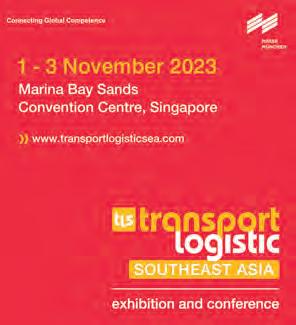
“Our incredibly talented team at WestJet Cargo is eager to disrupt Canada’s underserved air cargo market, by bringing competitive cost advantages, increased choice, reliable ontime performance and exemplary customer service. Today’s celebration signifies a green light to do just that, as we strive to meet the needs of Canada’s expanding cargo market,” de Bruijn continued.
In addition to the range of commodities already carried by WestJet Cargo such as perishables, e-commerce and live animals, the dedicated freighters have enabled a broad expansion of the carrier’s service offerings, including the capacity to carry oversized items and unitised ecommerce containers.

“It is an honour to celebrate this accomplishment amongst our key partners and stakeholders, each of whom played an important role in making today happen. The take- off of our dedicated freighters is a significant moment for Canada and the communities we serve, as we strengthen our ability to expand upon the essential products we carry across and beyond the country,” de Bruijn concluded.
